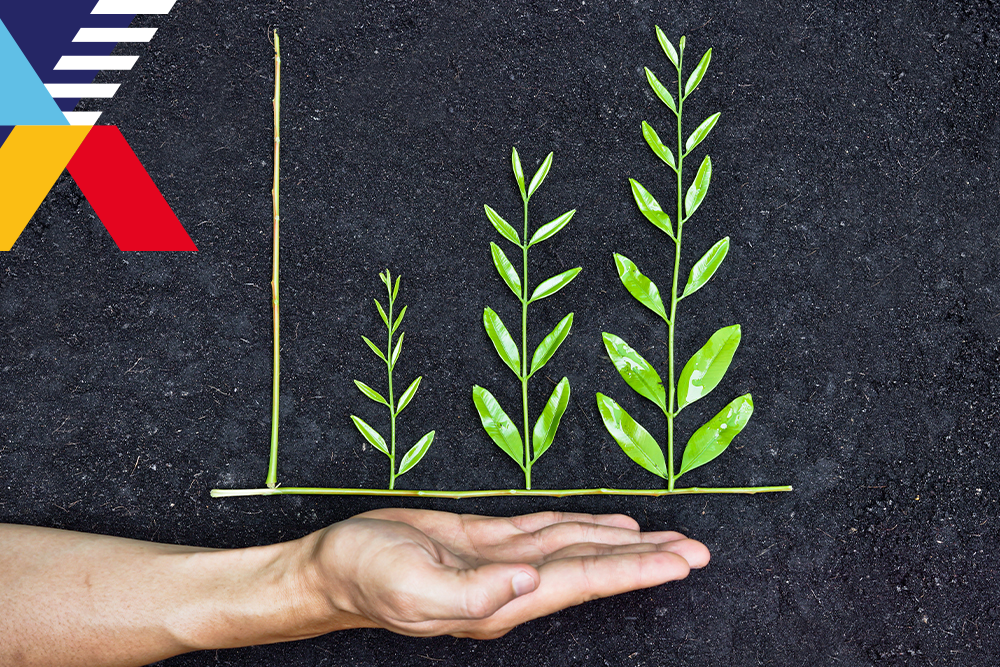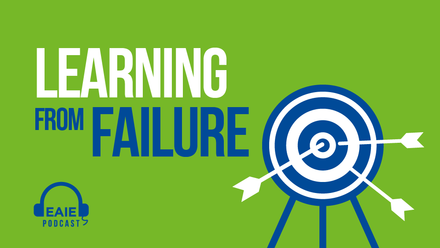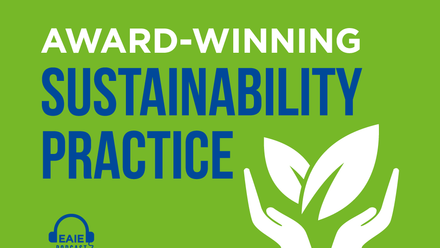Universities and the global sustainability agenda: a view from Bologna

The second essay in the 2021 Conversation Starter series zooms in on the holistic approach adopted by the University of Bologna to address the UN’s Sustainable Development Goals in its strategy. What makes their approach unique? What can higher education institutions do to actively take bold action and build brave strategies in relation to the SDGs?
Since the 2015 adoption of the 17 Sustainable Development Goals (SDGs) by the United Nations (UN), higher education institutions (HEI) – and universities in particular – have played a central role in the effort to attain these goals. But what does it really mean for an institution to commit deeply and actively to the SDGs, as a matter of both strategy and daily operations? Motivated by an appreciation of its long historical legacy and a growing awareness of its effects on society, the University of Bologna (UNIBO) has committed fully to the values of sustainability. By sharing details about the main activities undertaken and the key management and governance processes leveraged to embed the 17 goals within the university, we aim to add our voice to the community of higher education institutions leading the way forward towards greater impact in this vital area.
UNIBO’s sustainability commitments
Established in 1088 AD, today UNIBO is an internationally prominent university with over 85,000 enrolled students and more than 200 programmes offered across five campuses. Given its size and broad scope, UNIBO has become increasingly aware of its social, economic, and environmental impacts, and has taken urgent and effective actions to address the SDGs. In less than a decade, UNIBO’s efforts have led to significant outcomes. In 2020, UNIBO was ranked sixth in the Times Higher Education Global Impact Ranking, in recognition of its pioneering commitment to the SDGs.
Since the 2030 Agenda is not merely a set of 17 discrete goals but rather a coherent action plan, UNIBO has taken a holistic approach, integrating the SDGs into the institution’s life and each of the four main pillars of the university, namely Teaching, Research, Third Mission, and Institution (the last of which refers to the actions oriented toward the internal community of the university).
Given the crucial importance of the young generations for the future of this planet, UNIBO pays particular attention to teaching activities and projects that connect students to the SDGs. As of 2019, 3,860 UNIBO courses contribute to awareness, understanding or engagement with one or more of the 17 SDGs. To track these connections and ensure the SDGs’ visibility within the courses offered, each teacher must tag their course with indications of SDG relevance, which is published on the university portal, per UNESCO guidelines. UNIBO is also interested in understanding the extent to which gaining knowledge and abilities with relation to SDGs improves graduates’ employability. Hence, efforts to track these kinds of correlations are also actively underway. Furthermore, UNIBO provides a specific online course (in collaboration with ASVIS, the Italian Alliance for Sustainable Development) for professors and staff to raise their awareness about the SDGs.
Given the crucial importance of the young generations for the future of this planet, UNIBO pays particular attention to teaching activities and projects that connect students to the SDGs.
Research is at the heart of transforming our societies into more sustainable and dynamic places. Thus, UNIBO has dedicated various resources and financial supports to promote research on sustainability and the SDGs, and created several national and international collaborations with other organisations and universities. Amongst the most important research projects in this area are NANOMEMC2, which is aligned with SDG 9 and focuses on creating more sustainable production with lower CO2 emissions; PLOTINA, Project to Promote Gender Balance and Inclusion in Research connected to SDG 5; and the SMART COASTS project, winner of the first Horizon Impact Award, and dedicated to addressing climate issues outlined in SDG 13 through smart development of European coastal areas and people-centred solutions to climate change.
UNIBO develops partnerships with local and international communities, and society more broadly through its Third Mission activities. Aiming for maximum positive impact, UNIBO established the AlmaEngage initiative (University of Bologna, 2021a), a virtual structure designed to monitor, support and promote all the development cooperation and social engagement projects undertaken by the university in partnership with other institutions and NGOs. The Green Office, a hub co-managed by UNIBO students, professors and technical-administrative staff to help spread the culture of sustainability, is an equally significant initiative offering a place to discuss and implement concrete programmes and plans.
Finally, the institutional actions of UNIBO are measured by reflecting on the university’s performance against indicators connected to internal community matters. For example, UNIBO has adopted various internal policies and measures in relation to gender equality, water and renewable energy consumption, waste separation and collection, as well as the use of electric cars and public transport for employees, and the installation of green roofs for thermal insulation, soundproofing, and bioclimatic improvement.
UNIBO’s unique approach
UNIBO has crafted management and operational models based on the principles of sustainable development, forming a strategy that combines economic development, social inclusion, and environmental sustainability. The “Multicampus Sostenibile” model (University of Bologna, 2021c) focuses on managing and operating the multi-campus system with Sustainable Development principles.
UNIBO’s success in implementing and addressing the SDGs across the university’s different echelons was achieved by fully including the 2030 Agenda in the University strategy and adopting the SDGs as the driving standards for action, rather than mere parameters of analysis. Instead of identifying the SDGs targets and indicators that would conveniently align with the university’s actions, UNIBO adopted a reversed approach. They redesigned the university’s strategy based on actions that could deliver on the SDGs. This could not have been achieved without strong support from the highest levels of governance in the university and a thorough improvement of the traditional measurement criteria.
Instead of identifying the SDGs targets and indicators that would conveniently align with the university’s actions, UNIBO adopted a reversed approach.
A very critical step towards this aim was to reform the Strategic Plan of the University (2019–2021) to align with the 17 SDGs, reconciling the key strategic goals with related SDGs and articulating the required actions and strategies to achieve these goals in the short term. Moving from the strategic to the operational level, the dedicated initiative known as AlmaGoals (University of Bologna, 2021b) organises activities and actions at the university-wide and the single campus level. In addition, AlmaGoals assesses UNIBO’s sustainable development performance against key indicators and metrics, which is then reported to the public primarily via an annual Social Responsibility Report.
Most importantly, UNIBO elaborated a novel methodology, created by a specific Scientific and Technical Committee, to produce the university’s annual UN SDG report (University of Bologna, 2019a). Each institutional pillar (Teaching, Research, Third Mission, Institution) is analysed using a specifically formulated set of metrics. For example, teaching activities are assessed through three measures, namely course units, the number of students choosing these courses, and the number of collaborations, teaching, and mobility projects. Likewise, the dimension of research is measured using six items, including (but not limited to) the number of publications in and cited by Scopus and the number of funded research projects. Notably, the keywords used to analyse UNIBO’s scientific output were extracted from each SDG.
Analysis of the Third Mission, referring to the role of the university in the knowledge society, mainly involves looking at the number of cooperation and social engagement projects worldwide but also considers specific measures for some SDGs, such as students and teachers on lifelong learning programmes (SDG 4), spin-off and start-ups born of academic entrepreneurship (SDG 8), and events with public engagement (SDG 11).
The fourth pillar, ie the Institution, is measured by considering the university’s impact through its institutional governance and management. For example, UNIBO cares about gender parity among its teaching staff, therefore it monitors this with a glass-ceiling index. Likewise, UNIBO provides support and protection to staff with disabilities.
UNIBO cares about gender parity among its teaching staff, therefore it monitors this with a glass-ceiling index.
The tailored methodology created by UNIBO to assess its performance against the SDGs is a crucial element that distinguishes it from other universities. Numerical indicators have been carefully chosen to represent the university actions and initiatives in relation to all 17 of the SDGs; and for each SDG, both quantitative and qualitative information is organised according to criteria specifically articulated by the relevant institutional documents adopted by the university.
UNIBO’s hopes for other institutions
We hope that UNIBO’s approach, which has required both internally and externally oriented adjustments and buy-in, can be a role model for other universities. From our experience, this work requires a harmonised set of activities across the board. For UNIBO, this has involved redesigning institutional strategies, rethinking organisational structures and management models, and certainly not least in terms of importance, integrating the planning, control, and accountability towards the stakeholders. Several years of rigorous effort towards embracing the SDGs have taught us that robust work is needed to coherently orient internal decision-making processes, effectively allocate resources, and create an incentive system for teaching and research. Cultural sensitivity is also a must for a holistic understanding and implementation of the SDGs in universities, which can be achieved by establishing strategies for teaching and learning, fluid internal communication and collaborations, and dedicated offices and initiatives.
Robust work is needed to coherently orient internal decision-making processes, effectively allocate resources, and create an incentive system for teaching and research.
By encouraging our institutions to connect boldly, bravely and meaningfully with the SDGs, together we can create a sustainable, peaceful, and just world for all, without compromising the opportunities of future generations.
Questions for Discussion
1. To what extent is your higher education institution truly willing to invest in contributing to the achievement of the 2030 Agenda, including internal paradigm shifts?
2. How does your institution measure the impact of its internationalisation activities on the SDGs?
3. How can your institution enhance its engagement with local organisations, entities and communities?
4. How can your institution enhance cooperation with other higher education institutions with respect to the SDGs, and in what particular domains?
References
University of Bologna. (2019a). Report on U.N. Sustainable Development Goals. Retrieved from https://www.unibo.it/en/attachments/reporting-on-united-nations-sustainable-development-goals-2019/@@download/file/UN-SDGS-2019.pdf
University of Bologna. (2019b). Strategic plan 2019-2021. Retrieved from https://www.unibo.it/en/attachments/strategic-plan-2019-2021-in-italian/@@download/file/STRATEGIC%20PLAN%202019%20web.pdf
University of Bologna. (2021a). ALMAENGAGE! Development Cooperation and Social Engagement at the University of Bologna. Retrieved from https://site.unibo.it/almaengage/en
University of Bologna. (2021b). ALMAGOALS The University of Bologna for the U.N. Sustainable Development Goals. Retrieved from https://site.unibo.it/almagoals/en
University of Bologna. (2021c). MULTICAMPUSSOSTENIBILE. The University of Bologna for sustainability. Retrieved from https://site.unibo.it/multicampus-sostenibile/en






